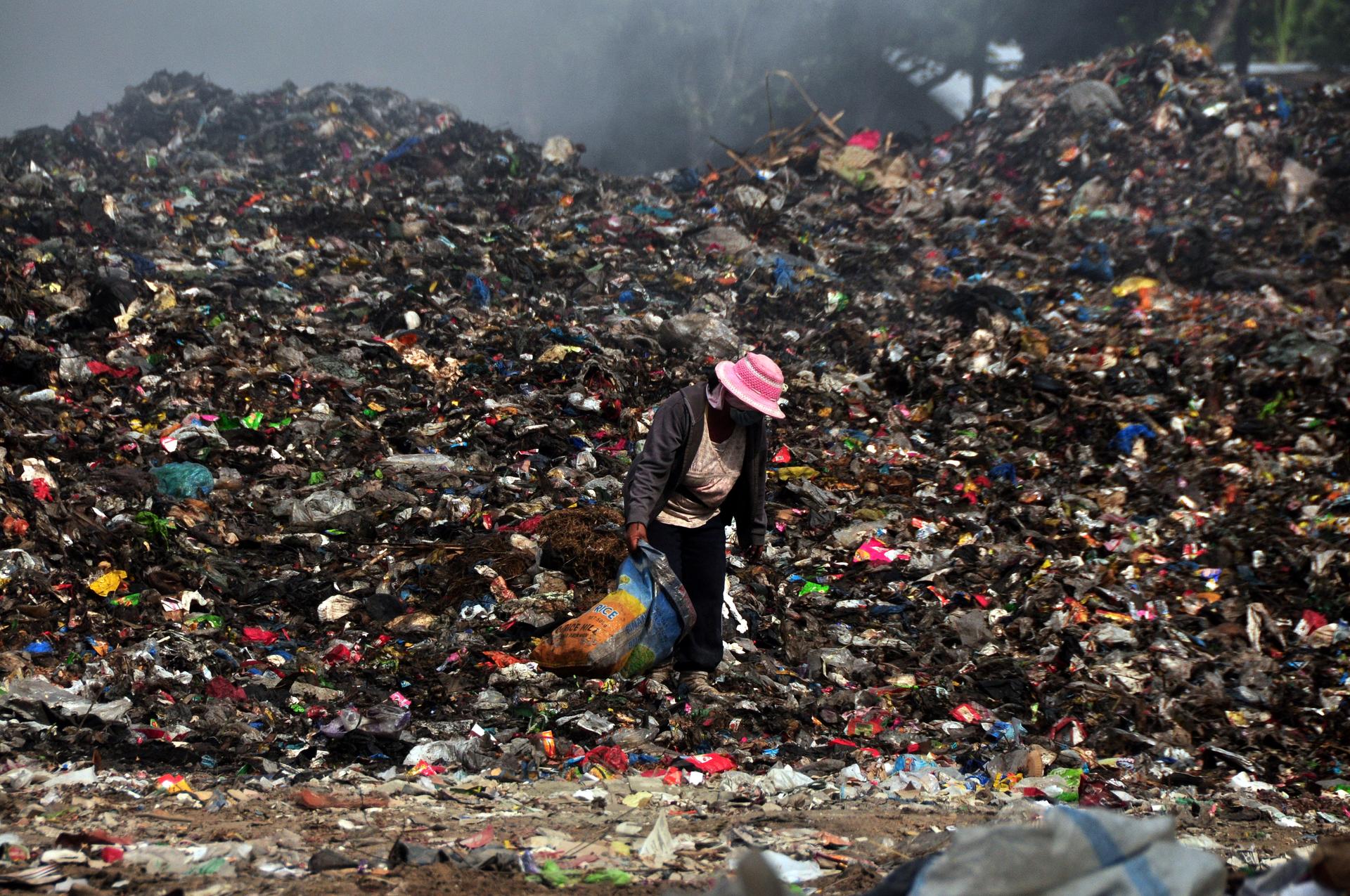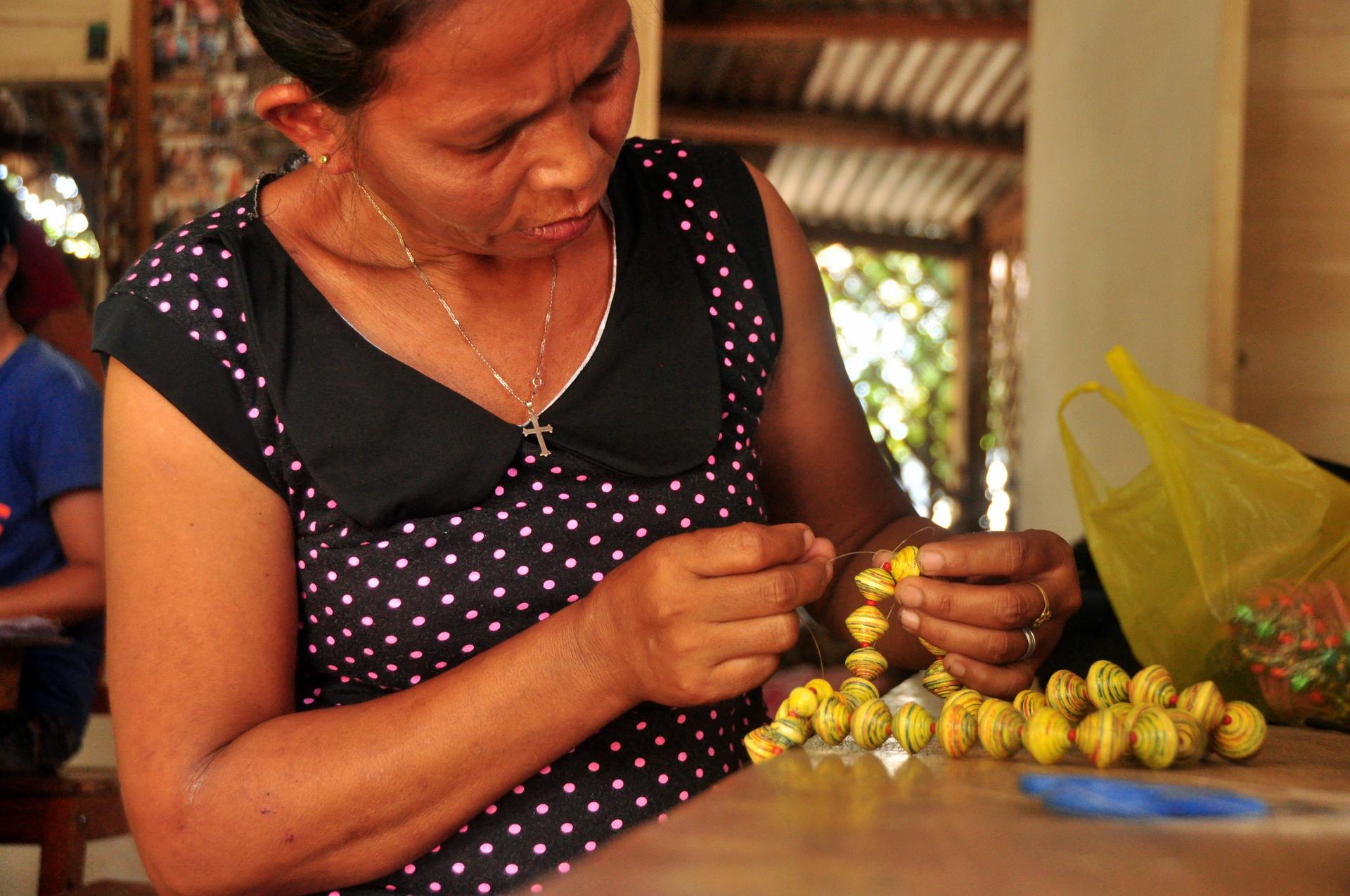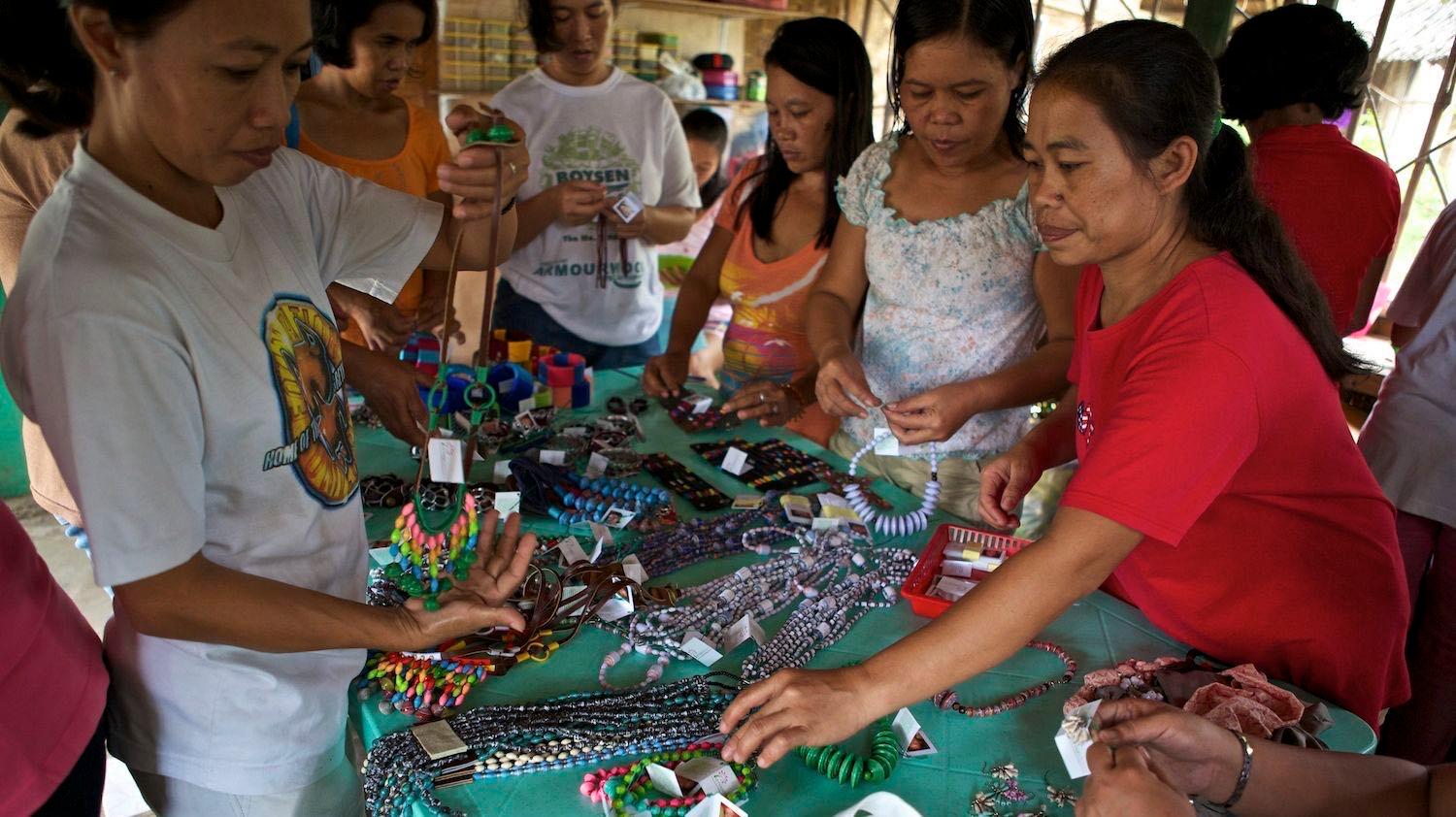These women in the Philippines scour a dump site for trash to turn into ‘something beautiful’
The women behind Lumago Designs prepare new orders.
To grow, blossom or bloom — this is what the Filipino word, lumago, means in the Philippines’ national language. But for the women of Lumago Designs, the word has symbolic meaning, as well.
“We wanted the name, ‘lumago,’ because it signified the improvement of our skills and the blossoming of our craft,” explains 48-year-old Flordeliza Nocete.
The mother of three is one of 10 women crafting jewelry for Lumago Designs, a social enterprise based in Dumaguete City in the Philippines’ Central Visayas region. These women are from the Candau-ay community and some of them live off the nearby dump, scouring tons of trash in hopes of finding reusable or recyclable items they can sell. The dump site takes in 80 tons of trash a day, collected from the city’s households and establishments.
This is part an Across Women's Lives project: Wear and Tear series: The women who make our clothes.
“Some of our crafters used to be scavengers,” says Becky Stanbridge, 30, a co-owner of Lumago Designs. “And because they live in the community surrounding the dump site, their way of life is to upcycle and reuse things they find. We wanted to cultivate that skill so they can use it to make something beautiful.”

The social enterprise started in 2011 when American social worker Whitney Fleming encountered the women at a feeding center. This was in the wake of a typhoon that devastated this area. Fleming began working with the women to create jewelry from materials found in the local dump site. In 2012, Lumago Designs was officially established. Stanbridge took over the social enterprise’s daily operations in 2015 when Fleming moved back to the US.
Lumago Designs’ jewelry-making process starts with a collaborative design step. “The women design the products themselves. At the beginning of the year, we put lots of inspiration together from local designers or from magazines. The women also bring in designs throughout the year,” Stanbridge says. “If we like a design, we’ll work on it and improve it until it’s wearable and can be remade.”
Related: An Argentine startup that makes shoes from discarded tire scraps and employs single mothers
Stanbridge says that they work with materials that can be easily sourced, such as discarded bamboo and old clothes bought from secondhand shops — leather jackets and bags and shirts and leggings. “We use things like pull tabs from drink cans, which are donated by local bars and restaurants. We also buy them by the kilo from scavengers so we can give back to the local community. We get donations of magazines, but a lot of our paper comes from the dump site,” she adds.
Most of Lumago Designs’ products are jewelry items — bracelets, earrings and necklaces. But they also make scarves, bags and keychains, and they’ve dabbled in household items like bowls, napkin holders and rugs. These products are sold in stores in Dumaguete and across resorts in the Philippines and in areas around the US and Europe.
The women of Lumago Designs make these pieces in the comfort of their own homes, where they choose their own working hours and produce an agreed upon number of items by a set date. For Janice Pinili, 37, working from home is a significant advantage. “I can still look after my two kids and get housework done while earning a living,” she says.
Each piece of jewelry goes through a quality control process. “We have two crafters who oversee quality control,” says Stanbridge. “They’re very meticulous and check every bead’s measurement. They also test if the components are put together right, whether it’s going to break apart. There are a few different processes they go through.”

The women are then paid for each piece that’s up to standard. “The way we work it out is, we time how long it takes to make a product, get an average number of hours from that and base it on a daily wage. If a product takes four hours to make, then payment is based on the half-day rate,” Stanbridge says.
“They’re artisans, and they employ a certain skill to do the work,” she says. “We pay them above the minimum local wage — what we consider a fair living wage — because we want it to be something that will hopefully bring them out of poverty.” She adds that the women are also paid for designs they create and for the workshops they conduct to show other crafters how to make their designs.
For Flordeliza Nocete, who has been with Lumago Designs since it started, the social enterprise has changed her life. As a widow and single mother, Nocete relies on her income from Lumago Designs to put her children through school. “Lumago Designs has greatly helped me,” she says. “I was able to send two of my children to college from my earnings.”
Janice Pinili says that working for Lumago Designs provides supplemental income for her family, but she takes pride in having her own earnings. “If I want to buy something for myself, I don’t need to ask [for] money from my husband anymore. I can use the money from my own wages,” she says.
Stanbridge understands her crafters’ struggles so she’s finding other ways to assist them. “We’re trying to implement savings programs. We’re now partnering with a local NGO to help them better manage their finances,” she says.
Stanbridge hopes to add more artisans in the future. She’s also considering setting up a workshop — a space where the women can get together and work.
“I want Lumago Designs to be self-sustainable so the women can run it themselves,” Stanbridge says. “But I also want to continue Lumago Designs’ initial goal to reduce trash, help local communities and empower women.”
